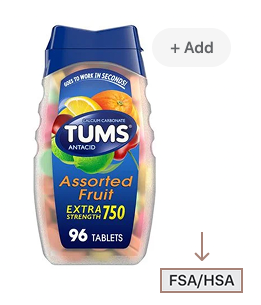HSA & FSA
Your Health Savings Account (HSA) and Flexible Spending Account (FSA) are tax advantaged ways to pay for qualified expenses.
Health Savings Account (HSA) from Empower: you choose how much to contribute
A health savings account (HSA) is a tax-advantaged account that can help you pay for qualified medical, dental and vision expenses. Employees who are participating in a THG medical plan are eligible to contribute to these accounts via payroll.
Free "Seed Money" From Your Employer
If you enroll in our health plan and open an Optum Health Savings Account (HSA), your employer deposits free "seed money" to your account.
Triple Tax Advantage
- Tax deductible deposits
- Tax free savings
- Tax deferred growth
Your HSA is a great way to plan for future medical, dental and vision expenses. You can use HSA funds for certain Medicare premiums in retirement. The money you put into your HSA is not taxed when you contribute it, and as long as you spend it on qualified medical, dental and vision expenses, you never pay income tax on it.
Employer contributions to your HSA, called “seed money,” are indeed generous, but they typically are not enough to cover all health care expenses. You will need to decide how much more money you’d like to contribute on a pre-tax basis through automatic payroll deductions.
Total annual contributions from you and your employer cannot exceed the annual IRS limits.
- You own the savings account
- Your HSA earns interest from Day One
- Funds build over time. You choose how to use them for qualified medical expenses
- You can use it to pay future eligible expenses tax free
- It’s portable—the funds are yours even if you change employers
In general, you’re eligible to contribute to your HSA and receive employer contributions if:
- You’re covered by a qualifying HDHP that meets IRS guidelines (ours do!)
- You are not covered by any other health plan
- You are not enrolled in Medicare, TRICARE or TRICARE for Life
- You have not received VA benefits within the past three months, except for preventive care; if you are a veteran with a disability rating from the VA, this exclusion does not apply
- You cannot be claimed as a dependent on someone else’s tax return
- Other restrictions and exceptions may also apply; request help from a tax, legal or financial advisor to discuss your personal situation
You can pay for expenses like these:
- Deductibles
- Dental visits (exams, cleaning, orthodontia, emergencies)
- Vision exams (contacts, frames, surgery)
- Hearing aids (batteries)
- Physical therapy
- Counseling
- Prescription medications
- Elective surgeries
- Emergencies and chronic conditions
Check out the full list of qualified expenses at: store.optum.com/expense-eligibility/
You can use your Health Savings Account (HSA) to buy over-the-counter (OTC) medications like allergy, cough, and pain relief medicines. Using pre-tax dollars from your HSA to purchase these items makes it a cost-effective way to manage your healthcare expenses.
Some common HSA-eligible OTC medications include:
- Pain relievers: Tylenol, Advil, and Aleve
- Allergy medications: Claritin, Zyrtec, and Benadryl
- Cold and flu medications: Mucinex, Sudafed, and Robitussin
- Digestive aids: Tums, Pepto-Bismol, and Imodium
- First aid supplies: Band-Aids, antiseptic creams, and hydrogen peroxide
Shopping online? Check out HSA Store or Optum to shop for HSA-eligible products. Want to find out if a product is HSA-eligible before you shop? Visit Wex for a quick search. When shopping a general online retailer, look for indicators that your purchase is HSA-eligible.
Here is an example:

When shopping online or in the store, use your HSA debit card. That will be your Optum card if your HSA is through THG. If you pay for an eligible expense out-of-pocket, you can reimburse yourself from your HSA. Simply log into your Optum HSA and choose Payments>Pay Yourself.
No. There is no “use it or lose it” rule for HSAs. Your money carries over from year to year, and the account is yours Whether you change jobs, change health plans or retire, you keep the funds you’ve saved in your HSA.
Once you reach the minimum HSA balance to invest, you can invest part of your HSA in mutual funds. These funds could grow in value, creating a nest egg for health costs in retirement.
Like any investment, mutual funds carry risks, and the money is not guaranteed to grow. Mutual funds can lose value, and investment funds are not insured by the Federal Deposit Insurance Corp (FDIC).
If you do pursue an investment account, you can choose how to spread your money among available mutual funds. You can move money out of (or between) funds at any time that you like.
Learn more by visiting empower.com and be sure to check out the HSA Investment FAQs in the Total Rewards and Benefits Portal.
Here's how to protect your HSA from fraudulent activity:
STEP 1: If you haven't already, register directly with Optum Financial. You will need to provide First Name, Last Name, Date of Birth, SSN or employee ID, and home ZIP code.
STEP 2: After completing your HSA login, click the Settings menu near the top and click Account profile. Review and update any information that is needed, like phone numbers and email.
STEP 3: Click Accounts menu near the top and click View All Transactions. You should review this regularly, just like your bank account or credit card, to identify anything suspicious or unexpected.
Need help completing these steps? Contact Optum Financial at 800-331-5455.
You can also help protect yourself with Mastercard® ID Theft Protection, a program available for your Optum Financial payment card at no extra cost. This program helps detect and resolve identity theft, and features:
- ID Theft Alerts™: Tracks thousands of websites to detect if your personal information is being bought or sold online.
- Expert resolution service: Available to help 24/7 if you think your identity has been stolen.
- Emergency lost wallet replacement: Assists you in quickly cancelling or reordering contents of your physical wallet such as your SSN and driver’s license.
Click here to get started. You will need your 16-digit HSA card number to confirm eligibility at sign in.
Flexible Spending Account (FSA)
Flexible Spending Accounts (FSAs) allow you to set aside money on a pre-tax basis to pay for eligible health and dependent care expenses incurred during the elected plan year
TIP! If you’re participating in an HDHP but not maxing out your HSA contributions, contribute the extra money there instead of into a Limited Purpose FSA.
- You can use your HSA on eligible health, dental and vision expenses
- HSA funds roll over each year, while FSA funds that are not utilized during the calendar year are forfeited
Limited Purpose FSA (dental and vision expenses only) from isolved Benefit Services: (optional)
If you anticipate a major dental or vision care expense this year, you can set aside money on a pre-tax basis with a Limited Purpose FSA. You can pay for eligible expenses using the convenient isolved Benefit Services FSA debit card, which you’ll receive upon enrollment.
Dependent Care FSA from isolved Benefit Services (optional)
If you expect to need services like daycare, after-school care or eldercare this year, you can save and pay for them with a Dependent Care FSA. This type of account allows you to set aside money on a pre-tax basis to pay for eligible expenses.
| Limited Purpose FSA | Dependent Care FSA | |
| Who is Eligible? | Available to all benefits-eligible employees | Available to all benefits-eligible employees |
|---|---|---|
| Sample Expenses Covered | ONLY eligible for dental and vision expenses, such as contact lenses, eyeglasses, dental surgery/crowns, orthodontia, etc. | Daycare, After-School Care, Elder Care |
| Minimum Employee Contribution | $250 | $250 |
| Maximum Employee Contribution | $3,300 | $7,500 (Single OR married filing a joint tax return) $3,750 (Married filing a separate tax return) |
- Annual pledged contribution is available on your effective date of coverage.
- The IRS requires you to keep copies of all expenses for which your FSA funds were used.
- Funds must be used by December 31. The IRS “use it or lose it” rules apply. The plan includes a rollover feature that allows you to roll over the IRS allowable amount of your unused annual funds into the next calendar year.
- The period to submit claims is 90 days from date of separation or end of calendar year. Claims incurred throughout the year must be submitted prior to 3/30 of the following year.
- Annual pledged contribution is available to the extent of employee contribution.
- The IRS requires you to keep copies of all expenses for which your FSA funds were used.
- The period to submit claims is 90 days following the end of calendar year.
- Please note, you will not receive a debit card for your Dependent Care FSA account. Instead, once you’ve enrolled, you will submit eligible dependent care expenses via the isolved Benefit Services portal. Verify with your care provider that their funds qualify. Funds must be used by December 31 each year, or they will be forfeited.
Page Contents
Forms
HSA One-Time Lump Sum Contribution Authorization Form
Download
HSA Rollover/Transfer Form
Download
Resources
HSA Investment FAQs
Learn More
Access Your Optum HSA Account
Login
File an FSA Claim
Login
Need Help? Reach out to Employee Hub
Phone: 1-800-303-0408 | Email: [email protected]
* This portal only summarizes your benefit plans. If there is a discrepancy between the information on the portal and your carrier plan, the carrier plan will always govern.





